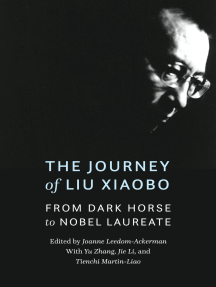BBC News – Agnes Chow: Hong Kong activist hailed as the ‘real Mulan’ https://t.co/xakJtBE44i
— Democracy Digest (@demdigest) August 12, 2020
Agnes Chow, a 23-year-old pro-democracy activist in Hong Kong, has got a new nickname. Her supporters have started calling her “the real Mulan” – in reference to the legendary Chinese heroine who fought to save her family and country, the BBC reports:
Ms Chow was one of a handful of activists and media figures arrested this week under a controversial new security law imposed by Beijing. She was detained on a charge of “colluding with foreign forces” – if convicted, she could face up to life in jail. She’s now been released on bail, but her arrest prompted an outpouring of support, with many tweeting the hashtag #FreeAgnes.
The U.S. will order imports from Hong Kong to be labeled as ‘Made in China’ according to a government document, in the latest escalation of trade tensions between the two nations, Bloomberg reports.
A website called The Grayzone, founded and edited by American Max Blumenthal, has made a name for itself by denying China’s campaign of cultural and demographic genocide in Xinjiang, Axios analyst Bethany Allen-Ebrahimian reports.

National Endowment for Democracy (NED)
Chinese government officials and state media outlets are citing The Grayzone and its contributors with growing frequency as Beijing attempts to cast doubt on accusations of atrocities in its far Northwest region, she adds, citing an attempt to discredit Adrian Zenz, a researcher whose work has helped uncover the existence and scale of mass internment camps in Xinjiang.
“Having westerners say things that are in line with the state narrative helps bolster their claims,” Darren Byler, a postdoctoral fellow at the University of Colorado Boulder’s Center for Asian Studies, said in a July 30 interview with Coda Story.
Historically, efforts to capture elites have preceded state capture. The Chinese communist leadership seems to have learned all too well the British imperial dictum that “we do not run Egypt, we run the Egyptians who run Egypt,” adds Andrew Michta.

National Endowment for Democracy (NED)
The massive inflow of Chinese money into the United States, and increasingly into Europe, has translated into a relentless string of influence operations not only through Confucius Institutes, but across our think tanks, corporations, and the media, he writes for The American Interest:
Chinese money would also go on to support commissioned research at our premier research universities, with contracts stipulating that U.S. researchers turn the results over to their Chinese counterparts and refrain from criticizing Chinese policies (over the past six years 115 of our colleges and universities received $1 billion in monetary gifts and commissioned research from China). Corporations—still American in name—lobbied vigorously to maintain the status quo long after it had become clear that the United States was at risk of being transformed into a tributary state to China. This makes the past 30 years of globalization an historically unprecedented time. We handed over to communist China the jewels of American technology and industry, while relentlessly educating Chinese scientists and engineers (last year of the approximately one million foreign students at U.S. colleges and universities, 370,000 were Chinese, mainly in STEM graduate programs).
Assaults on intellectual freedom in authoritarian settings like China’s start at home, but their reach is increasingly global, analyst Glenn Tiffert wrote in “Compromising the Knowledge Economy: Authoritarian Challenges to Independent Intellectual Inquiry,” for the Sharp Power and Democratic Resilience series, from the NED’s International Forum.
Hong Kong as an idea has been destroyed. There is only one system and it is run by the CCP. https://t.co/DQGykV1zKU
— General Spalding (@robert_spalding) August 12, 2020

 The measures reflect Beijing’s “enemy mentality” of deflecting blame,
The measures reflect Beijing’s “enemy mentality” of deflecting blame,  But, adds
But, adds 





